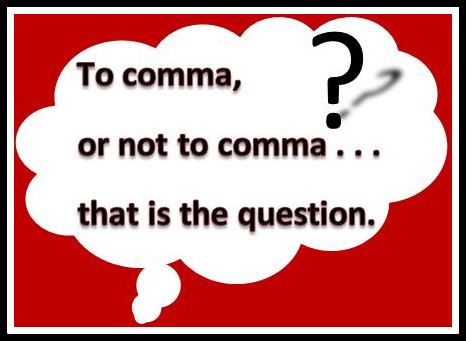Will Customers Punish You for Bad Grammar?
By Helen McCrone, SEO Copywriter | Word Count 853
Helen McCrone looks at whether poor grammar really does have an impact on a business. You may be in for a surprise.

If You Think Grammar Rules Don't Matter, Think Again
Tell me, what do you do when you get an email that contains spelling and grammar errors? Do you tut-tut in irritation and hit delete? Do you shrug your shoulders and carry on reading? Do you even notice these gaffes?
If you seriously doubt that there's anybody left who cares about whether it should be “self employed” or “self-employed” and ‘less’ or ‘fewer’, you may want to think again. There are still plenty of us around who do sit up and take notice.
And we’re prepared to walk away from a business that does make those kinds of mistakes.
Yep, that’s right.
Typos and grammar errors come with a price attached.
There's research to back that up, too. In 2013, U.K. firm Global Lingo polled 1,029 adults on their online purchasing and browsing habits. The results may shock you:
59% of adults said that bad grammar and spelling errors would stop them buying from the website.
Why? Because they wouldn't trust the company to provide a good quality service.
Ouch!
But before you nip off and check your own website for bloopers, let’s ask ourselves why some people are annoyed by mistakes and others aren’t. Is it a generational thing? Or is it down to their education?
Reckon You're Not A Grammar Nazi?
Julie Boland and Robin Queen, both professors of linguistics at the University of Michigan, were so curious about the reason some people are irritated by errors and others aren't that they decided to do some research into the topic.
They did an experiment to investigate if written errors changed how a reader’s interpretation of the message and if those errors led the reader to make certain conclusions about the writer.
You can read about the experiment in detail on Business Insider, but basically the participants were asked to rate the email writer – who they did not know - as a potential housemate. They had to make judgments about factors like intelligence, friendliness and laziness.
What the participants also didn’t know is that the researchers had created three versions of the email: one with no mistakes, one with a few typos like abuot for about, and one with common grammatical mistakes like using there instead of their.
The research findings are illuminating: grammar errors in the email resulted in much lower ratings for the potential housemate. The researchers concluded that:
Errors do influence our perception of the writer if that writer is a stranger to us.
So, what relevance does this have for you and your business?
Well, you need to bear in mind that, when writing for an unknown audience, errors do matter!
In other words, your friends will overlook your mistakes, but your clients and potential customers won’t. They’ll be thinking: If they can’t even write a decent email, why should I do business with them?
Poor Grammar Can Spoil Your Chances Of Promotion
Still not convinced that mistakes have consequences?
Grammarly, the free grammar checker, also has research to back up the theory that mistakes do matter. It studied the LinkedIn profiles of 100 native English-speakers and found that fewer grammar errors equate to more promotions.
Professionals with up to four promotions over their 10-year careers made 45% more grammar errors than those with six to nine promotions in the same period.
True, the study didn’t establish whether the relationship was causal or not, but it does suggest that good grammar is a predictor of professional success. It also supports people like Kyle Wiens, CEO of iFixit, who refuses to hire people who use poor grammar. He maintains that good grammar is a sign of professional credibility, attention to detail and learning ability.
Now, you may think that Wiens is taking the whole grammar thing a step or five too far, but maybe he has a point. Faced with two resumes that are the same content-wise, but one is grammatically perfect and the other is littered with blunders, which would you choose?

Back To Grammar School
My husband is constantly raising his eyebrows heavenwards because I have a habit of pointing out the errors that businesses make in their letters, websites and signage (commas, apostrophes and hyphens are my bugbear).
But even he can’t deny that, if a business wants to project an image of professionalism, it should be mindful of correct grammar and spelling.
Now that you’re wishing you’d paid more attention to your English teacher at school, try your hand at spotting the mistakes below. All were made by famous organizations. Yes, the big guys get it wrong as well!
Lets go!!
Bicycle stance must be used at all times
Not just for Friday’s
Your applying for a select account
Less calories than an apple
Our orange juice is the most tastiest
So fun, they won't even know their learning
Perfection has it's price
So, did you spot them all the mistakes? What's your biggest bugbear when it comes to grammar and spelling? Share your
thoughts by leaving me a comment below.
Make sure your business is not making similar mistakes. As a freelance copywriter, I produce engaging, persuasive and error-free website and marketing content for all kinds of businesses. Check out my content writing services today.

